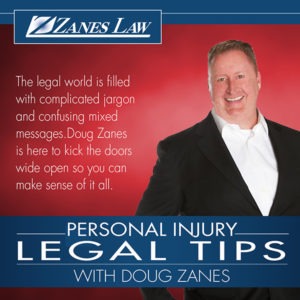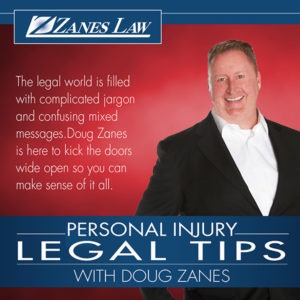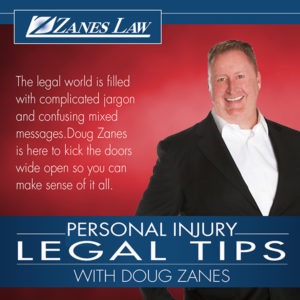![]() Contact Us (866) 499-8989
Contact Us (866) 499-8989
What Are the Steps to Filing a Personal Injury Lawsuit in Tucson?
- Filing a Personal Injury Lawsuit: How It Works
- 1. Someone Is Hurt in an Accident
- 2. An Attorney Files Personal Injury Lawsuit
- 3. The Defendant Answers the Complaint
- 4. The Discovery Process
- 5. Arbitration
- 6. Trial Phase
- 7. Settlement
- Learn More About Filing a Personal Injury Lawsuit in Tucson
- Home
- FAQs
- Personal Injury
- What Are the Steps to Filing a Personal Injury Lawsuit in Tucson?
The majority of people won’t have the need to file a personal injury claim in their lifetime, so many people are unaware of how a personal injury claim works. Your attorney might suggest that you file a personal injury case if you sustain serious injuries that were not your fault.
A personal injury lawsuit is a civil action designed to recover compensation for injuries when another party’s negligence is a factor. It does not determine the outcome of a criminal matter.
Personal injury cases come in all shapes and sizes because there are many ways that people get hurt. Slip and falls, dog bite claims, and car accidents are common examples. The extent of injuries and damages will be different in each, but the steps to filing a personal injury lawsuit will remain generally the same.
Filing a Personal Injury Lawsuit: How It Works
The truth is most claims never see the inside of a courtroom, however, the potential is always there. The filing of a lawsuit can help a claimant to maximize the damages they recover for this very reason.
Litigation is costly and very time-consuming, so most defendants and insurance companies wish to avoid that scenario. Hiring a lawyer increases the likelihood of a case going to trial and acts as a motivator for the insurance adjuster and defense counsel to be more agreeable to your settlement demands.
Here is how a filing for a Tucson personal injury lawsuit begins, develops and resolves in the most common circumstances.
For a free legal consultation, call (866) 499-8989
1. Someone Is Hurt in an Accident
There must be some sort of injury in order for a personal injury claim to be valid. No action will get very far without some evidence of the plaintiff’s injury, regardless of how obvious the defendant’s liability or the plaintiff’s losses may be.
The type and severity of your injuries can often shape a case and will likely weigh heavily in deciding the amount of damages you receive. The majority of plaintiffs will consult an attorney if their damages appear to exceed Arizona’s $3,500 small claims court threshold.
The attorney can perform an evaluation to determine whether there are grounds for legal action and if the defendant has the resources available to cover the cost of any damages.
2. An Attorney Files Personal Injury Lawsuit
The plaintiff’s attorney will submit a personal injury complaint to the appropriate Tucson civil court after determining that a valid case exists. The complaint, which is the first official record in the case, details the plaintiff’s claims. This will explain what the defendant did and how the plaintiff was injured.
The plaintiff’s lawyer will have a month or more to find the defendant and “serve” the complaint on them after the complaint is filed. Serving the complaint essentially involves handing it to the defendant in person and includes a summons.
The summons let the recipient know when to be in court and prevents the defendant from subsequently claiming they were unaware of the personal injury lawsuit.
Click to contact our personal injury lawyers today
3. The Defendant Answers the Complaint
The defendant has a set length of time to answer after the complaint and summons have been filed and served. This varies based on the court (and occasionally the defendant’s location), but is typically 21 days.
The “answer” is the defendant’s response to the complaint, in which the defendant answers each paragraph of the complaint and either admits or rejects the claims made therein.
Various legal justifications for why the defendant should not be held accountable for the plaintiff’s damages may also be raised in response.
A defendant may raise a counterclaim in their answer if the defendant wishes to bring their own lawsuit against the plaintiff.
Complete a Free Case Evaluation form now
4. The Discovery Process
In the early phases of the pre-trial procedure, both sides will also appear in court to notify the judge of how the case is progressing, to discuss and determine whether they will agree to mediation or arbitration, and set a trial date.
Both parties will start scheduling depositions of the opposing party and witnesses as the discovery process moves forward. Trial dates for a Tucson personal injury lawsuit can be frequently postponed in the discovery process and can be lengthy in some claims.
When discovery is complete, the defendant can ask for a dismissal based on summary judgment and claim that the plaintiff can’t prove their case. The parties will increase their efforts as the trial date approaches. Settlement discussions will be mandatory, and more motions will be filed in an effort to determine what will be admissible in court.
5. Arbitration
It’s important to note that in cases with a dispute valued at under $50,000, Arizona has mandated compulsory arbitration. Here is what you need to know about arbitration proceedings in Tucson.
- Each side has ten days following the appointment of an arbitrator to submit a Notice to Strike Arbitrator form if they wish to request a new arbitrator.
- The appointed arbitrator will continue to hear the case if no notice to strike is submitted unless there is a conflict of interest or a personal reason why they cannot.
- If the arbitrator has a conflict of interest with the case, they must notify the Court in writing.
- When an arbitrator signs the arbitration award, it is submitted to the court clerk for filing. The non-prevailing party has 20 days to file an appeal.
- Following an appeal, the assigned judge will either hear the case or refer it to alternative dispute resolution.
- The decision of the appointed judge is considered binding.
6. Trial Phase
The trial for a personal injury lawsuit in Tucson will run for at least a few days in a normal personal injury case. If the defendant is found to be responsible for the accident, the judge or jury will decide how much the defendant must pay in damages.
Following the trial, any side may begin an appeals procedure, which might take several months to several years. A losing defendant will be forced to make the damages determined at trial or on appeal when the appeals procedure has concluded.
7. Settlement
Most personal injury cases settle before trial. At any point in the process, the parties can settle and end the case, even before the complaint is filed. Settlement is generally the most likely outcome, with the exception being cases that are incredibly high stakes—in the millions.
Learn More About Filing a Personal Injury Lawsuit in Tucson
Your options for legal action can be better understood by discussing your situation with a Tucson personal injury attorney with the training, credentials, and experience necessary to guide you through the legal process.
Contact us today for a no-cost, no-obligation case evaluation. The personal injury lawyers of Zanes Law are here to help.
Call or text (866) 499-8989 or complete a
Free Case Evaluation form
 Injury Lawyer Doug Zanes Interviewed For “Business Leader Spotlight”
Injury Lawyer Doug Zanes Interviewed For “Business Leader Spotlight”
Doug was recently interviewed by Randy Van Ittersum on the "Business Leader Spotlight Show." It was a great experience and gave him the opportunity to share important topics that are super
 Need Personal Injury Legal Advice? Listen to Our NEW Podcast by Doug Zanes!
Need Personal Injury Legal Advice? Listen to Our NEW Podcast by Doug Zanes!
We are excited to announce that we have officially launched the Zanes Law Personal Injury Legal Tips podcast, featuring advice from Zanes Law owner and responsible attorney Doug Zanes. When
 Should you hire an injury attorney? 5 Things You Need to Know
Should you hire an injury attorney? 5 Things You Need to Know
We know that when you’ve been injured in an accident, it can be difficult to take legal action quickly. After an accident, you might just want everything to be over and done with, so you
 Can I Settle An Injury Claim On My Own?
Can I Settle An Injury Claim On My Own?
Nobody expects to be in an accident—let alone get injured in an accident—but when it does happen, you may be asking yourself a lot of questions, including, “Can I settle an injury claim on my
Receive a Free, No-Obligation, Case Evaluation Now



